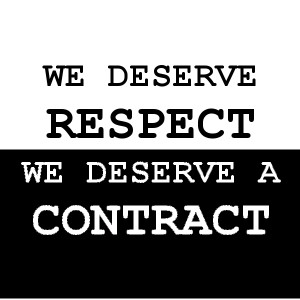My friend Scott (who blogs here) sent me this question the other day:
"I had an idea recently and I was wondering what your thoughts were. This is in regards to school reform, and I’m not a teacher; I’m guessing you’d have a very different perspective."
Okay, right away I'm hooked. Not only am I teacher, but I'm a teacher who loves to speak for all teachers. Other teachers might not appreciate that, but it's just how I roll. Also, I love to talk about school reform, partly because our schools do need to be reformed, but mostly because they do not need to be reformed for the reasons or in the ways that the professional school reformers want them to be reformed, and, as a teacher, I believe I have an obligation to speak out in defense of great public schools. So when Scott starts this way, I immediately start to gird my loins and prepare for a fight. But...
"I wa s recently listening to a book called The Generals, regarding the changes in command structure of the US army from WWI to Iraq II. One of the reforms he talks about having been introduced in the interim between Vietnam and Iraq I was that they ceased to have “X number of hours” requirements for training and replaced it with “demonstrated proficiency”-based training. That is, once you pass a test, you move on to the next point. This meant that officers were no longer forced to spend time in a mind-numbing course that they already comprehended, and those not learning had a greater incentive to learn."
s recently listening to a book called The Generals, regarding the changes in command structure of the US army from WWI to Iraq II. One of the reforms he talks about having been introduced in the interim between Vietnam and Iraq I was that they ceased to have “X number of hours” requirements for training and replaced it with “demonstrated proficiency”-based training. That is, once you pass a test, you move on to the next point. This meant that officers were no longer forced to spend time in a mind-numbing course that they already comprehended, and those not learning had a greater incentive to learn."
Hold on! He's talking about the movement toward proficiency grading, a move I support!
"Now there have been a number of suggestions that schools actually pay students money to do things like show up and do homework and such. I’m guessing I’m not alone in thinking this is a terrible idea. There’s also the idea of incentive pay for teachers, which likewise is a terrible idea (it punishes or rewards teachers based in large part on the active role that the student’s parent plays, over which the teacher has no control, favoring the teachers with the easiest students). However, I think that incentives might be made better. Namely, students could be rewarded with time and autonomy for good behavior."
Paying students to learn is a bad idea: Agreed. Incentive pay for teachers is a bad idea: Agreed. Students can earn time and autonomy for good behavior: ...almost. A big part of proficiency grading is the recognition that behavior is not enough. Good behavior should lead to the acquisition of skills, and it's the acquisition of skills that should be rewarded. But I'm interrupting.
"I imagine something vaguely of this nature: students have to be at school from X:00 AM to X:00 PM, regardless of progress; this would not change. But let’s imagine that each school year were divided into quarters that last, say, 13 weeks (with the “4th quarter” being summer vacation, slightly shorter than the others due to vacations or holidays or staff development days, etc., during the course of the normal 3 quarter school year). The regular course of the semester would be to have instruction complete in 9 weeks with a final exam **or** final report/presentation/etc. (I don’t care about the specific metric; this is not about increasing the testing frenzy, but a student should be able to establish proficiency in whatever subject by a standard deemed appropriate by that instructor for the course at hand). If you pass that final exam, your next four weeks are given to you to do as you will with high flexibility and autonomy. If you like art, take art classes. Take extra time in shop, or in science lab, or just read or write in the library, should you choose. Enroll in some online college courses (audit or credit, it’s up to you). Enroll in local community college courses for free (this was actually available in San Diego for anyone with a free period, but I didn’t know it). Learn to program computers. Parents would also be free to take their kids out of school during those three weeks for vacations, should they be so inclined, without missing any important school work, provided the kids passed all of their classes prior to that.
"In addition to incentivizing the students to actually master the material at the end of 9 weeks, it would have the added (potential) that the teachers would be able to focus additional time for those students that most need it in those final 4 weeks. Students not passing at the end of the 13th week would need to use an elective period in the following quarter to meet the demands not met by the class not passed.
"My basic assumption is that *most* students have at least some subjects that they could meet proficiency in very rapidly if they had an incentive of (relatively) free time. This might serve to help align the goals of the students and the teachers. Yes, it would require more funding, but the truth is that Americans really aren’t that squeamish in general about spending money on education; in general, we spend way, way more than the rest of the developed world, and the few exceptions are small wealthy populations (like Norway and Luxembourg) which, though they compete with national averages favorably, still don’t spend as much as small subsections of the US like Boston or NYC. The problem is that administrators and bureaucrats take a large cut off the top (leaving less for teachers), and the results don’t track the increases in spending. Largely this is because parents today have bifurcated into two large camps of the over-involved and the under-involved, and the progress of a given student seems to reflect primarily their parental involvement. As such, motivating the students themselves seem imperative. What insights can you offer as a teacher?"
Oh, I have opinions galore. As to whether or not they are insightful, I'll let you judge, Scott.
We’re instituting something very much like this right now. It’s both daunting and exciting.
First, the exiting part (for a philosophy-major theory-head geek like me): The theory. The idea is that we’ve been grading all wrong, and the flawed grading has led to bad instruction. Grades should describe precisely what a student is capable of doing in relation to the goals of the course. Unfortunately, we’ve been messing that up in a number of ways. A student moves on to the next level of a course with a B, and the next teacher doesn’t know if that B means the student is capable of doing all the tasks required in the last class, or if she did a bunch of extra credit, or if she worked really hard and earned the teacher’s pity, or if she was super-capable but was punished for being lazy, or for cheating, or skipping school occasionally (because she was bored), or for a myriad of other reasons she might have that B. Instead, the grade should describe only her performance. Ideally, she shouldn’t even get a letter grade. She should get a list of specific tasks and simple scores on those (Meets, Exceeds, Does Not Meet, Did Not Attempt), so the next teacher knows precisely what she can and cannot do. If the grades were done this way, the instruction would be designed to lead up to these specific performance tasks. She could take a pre-assessment to determine if she already knows how to do whatever is about to be taught. If so, don’t waste her time teaching her that! If not, teach her how to do it. When she shows she can, move on. If she still can’t, don’t just pass her on to the next teacher. Take the time to focus on that skill she lacks. And don’t muck up her scores with anything but explicit descriptions of her academic ability: Bad behavior gets handled by administrators and her parents and is unrelated to her grade. Extra credit doesn’t exist. And effort only matters if it results in being able to perform the tasks; she’ll learn that it matters a whole lot, but not because she’s working for a letter.
That’s how it’s supposed to work. It can, too. Some people are doing this already and doing it well. It doesn’t even necessarily have to cost a lot more. Rural one-room schoolhouses with great teachers are perfect for this kind of thing. Really good home-schoolers can even pull it off (though too often home-school teachers can turn out to be un-schoolers or grossly unqualified to teach every subject at every level. I know I would be. Plus there’s the whole issue of socialization which requires a lot of work by home-school teachers who don’t want to produce students who can pass every test but are socially dysfunctional). Small class sizes are an important part of the mix here. No one can effectively keep track of 200 kids all going at their own pace, or at least no one I know, and I’ve worked with some of the best teachers in the country.
But it takes more than small class sizes to make this work. Teachers need lots of time and support to rewrite curriculum so that it targets specific tasks and measures them each effectively. There’s an understandable temptation to go out and buy a canned curriculum that will do all that work for teachers. That impulse must be avoided at all costs. For one thing, canned curricula tend to suck. Just because a huge corporation made something doesn’t mean it’s any better than something your local school teacher can produce, and it might mean it’s a whole lot worse. The corporations designing curricula have different motives than producing something that’s been tested and shown to be effective: They want to produce something that’s flashy and will make them lots of money. Sometimes the profit motive can lead to high quality products for reasonable prices (see: Toyota or Volvo)
and sometimes it leads to things that look a lot better than they really are (see: the early Miata)
or are priced to sell but not to last (see: the Ford Pinto). 
Also, when teachers are given a canned curriculum they do not have the investment in its creation, so they are less likely to know the material inside and out and are more likely to resent the material (sometimes garbage) being handed down from on high. So, in order to do proficiency grading properly, teachers need the time and support to create dozens, sometimes hundreds, of pre-tests, connected lessons, and post-tests. And since our hypothetical student needs to have many opportunities to try again when she doesn’t master a skill the first time, more post-tests and more post-tests.
The other temptation is to plunk our poor girl down in front of a computer and make her take as much of her schooling as possible through computer-based classes. Now, teaching through the computer can work, but only if it’s done in a very specific way. Linguists learned a long time ago that programs on the radio, broadcast by Radio Free America, didn’t effectively teach people English. Why not? They could listen to them for hours upon hours, but they didn’t absorb the language. Was something wrong with them? Nope. It was the nature of the instruction. When people learn, they need to be able to demand feedback and receive unrequested correction. If you can’t ask a question and get an answer, you don’t learn well, and if you are doing something wrong and no one corrects you, you just keep on doing it wrong. Computer courses, too often, are designed to provide learners with an onslaught of information they are simply supposed to absorb before taking a test which provides them with very little feedback or correction. Someday we’ll design computer programs that can evaluate a student’s performance, provide them with the appropriate feedback needed to improve, and answer their questions (correctly and appropriately for their level) when they ask. Then I will be out of a job. Luckily, we’re not there yet, and the people trying to sell computer-based learning are more concerned with saving schools money (and making their own) then providing students with the best instruction. (But the day will come when students taught by computers do better than students taught by humans. I think that’s as inevitable as, say, universal healthcare. Yes, teachers should be as worried as the folks who file health insurance claims. We will have to learn to do something else.)
out of a job. Luckily, we’re not there yet, and the people trying to sell computer-based learning are more concerned with saving schools money (and making their own) then providing students with the best instruction. (But the day will come when students taught by computers do better than students taught by humans. I think that’s as inevitable as, say, universal healthcare. Yes, teachers should be as worried as the folks who file health insurance claims. We will have to learn to do something else.)
Another challenge for a true proficiency system, which you already alluded to, is what to do with the kids who are done too fast, and what to do with the kids who aren’t done fast enough. Our traditional model says that they should all go at the same rate, and we do it that way not because we believe it’s true, but because we can’t quite figure out what to do about the fact that we know it’s false. In small degrees, it’s bearable. If our hypothetical student finishes her math faster than her history, maybe we can provide a space where she can work on the history she needs to catch up on while the rest of her math class reviews something she already knows how to do. But what happens when she’s ahead of her class at everything? Free time to learn about things she’s interested in would be great, but according to a proficiency model, we should be moving her on to the next grade’s material. That poses a number of problems, though. Do we want a really bright 7th grade girl hanging out in the same halls as our 16 year old guys? And what if she’s not a really bright girl? Do we warehouse her in a class of capable 7th graders when she’s 16? What will that do to her, socially?
Oh, and remember how I mentioned that behavior problems will be taken care of by teachers and administrators and parents working together? That part is essential. And rare.
And those are just the obvious problems. What about the kid with a learning disability who is never going to be able to perform certain tasks? Do we say he’s a 10th grader forever? And what about the kid who just moved to this country and doesn’t speak a lick of English? And what if he is also the kid with the learning disability? Our traditional model allowed that kid to stumble along with straight Ds, get a high school diploma that completely deceived employers about his ability level, and then he could get a low-level service sector job and maybe be okay. But those jobs no longer pay a living wage and the world wants high school diplomas to mean something specific.
Which brings us to another major issue: The world has not adjusted for the proficiency based model. Parents still want to know what the letter grade is because that’s how they were taught to evaluate their own performance when they were in school. Colleges are warming to proficiency grades because they will give them a better sense of who can succeed within their walls than the meaningless high school diploma did, but scholarship committees still want a GPA, so even a kid who wants to go to a progressive school that recognizes his list of skills instead of his GPA might not be able to pay for it. Businesses want to know that the kid will show up on time and obey his boss, something the list of tasks might not include. It’s going to take time for schools to be able to show that students focused on building skills still learn a work ethic without the fear of punishment through punitive grading, and in the meantime they may be punished for the system’s uneven, hodgepodge switch.
And then there’s the problem of the timeline. This wholesale reboot of both the grading and the delivery of instruction will take a while. We could just start with Kindergartners and roll it out over 13 years. That would allow folks to get more comfortable with it, but if we really know it’s better for kids, can we justify not doing it for the kids in high school right now? Conversely, is it fair to change course midstream for the high school seniors who are in line to be valedictorians and suddenly find that A) they have been earning those As through hard work and extra credit but can’t earn better than a B on skills alone, B) their colleges of choice still care about GPA more than skills, and C) the valedictorian award is suddenly getting the ax (which it should have received long ago)? All the theory might say proficiency is what is best for these kids, but it still feels unfair to me. And it will seem plenty unfair to their parents. Oh, and they would be right to point out that the teachers don’t even know how to do proficiency right yet.
And herein lies the biggest threat to proficiency-based teaching and learning: If the rollout is done poorly, despite all the research and theory behind it, we will abandon it like we have so many other education fads that were underfunded and hastily implemented. We’re already seeing that here in Oregon. The state produced a law that said, simply, that schools had to produce an annual letter to parents which described their child’s proficiency separate from that child’s behavior. Some schools dove in years ago, preparing for this, and they’re getting good at it. Others, like mine, are diving in at the last minute, but we’re going all-in, leading to massive stress levels and a very uneven implementation. Others are saying, “Let’s wait and see if the state will really enforce this law, because this sounds like a lot of work, and they’re not paying for it.” In the midst of this, parents start screaming (rightfully), and the politicians are running away from it, declaring that schools that are attempting to measure proficiency all year are going way beyond the law since they only required an annual report (as though anyone could produce an accurate report on the fly in April without keeping track all year), and that local districts get to define behavior. They went so far as to wash their hands of any definition of behavior, saying schools could include or exclude homework, missed work, cheating, absences, extra credit, you name it. Now, I’m all for local control when it makes sense, but if the state wants to pass a law that uses words, they can’t turn around and say each locality gets to individually decide what each word means. That’s not a law. That’s not even a meaningful suggestion. But this is what could undo your great idea, Scott. We either have to push through the resistance any new system will necessarily generate and provide the resources to allow that new system to produce results, or we will starve it of resources and buckle under the pressure to remain status quo.
And here’s what my experience as a teacher has really taught me: When people are pissed off about the crappy roll-out, they will blame the teachers. When the roll-out is starved of the necessary resources, they will blame the teachers. And if succeeds, the way public schools succeed right now in educating a broader swath of our population to achieve at higher levels than they ever have before, someone will point out that our kids are not doing as well as the kids in a country where kids are culturally homogeneous, all speak the same language, have a strong enough social safety net that all of them are fed and have healthcare, have vastly less income inequality, aren’t traumatized by our levels of crime, and go to school six days a week and throughout the summer, and they will blame the teachers.
 And the people blaming the teachers will call themselves school reformers, make millions peddling the next fix, and send their own kids to private schools.
And the people blaming the teachers will call themselves school reformers, make millions peddling the next fix, and send their own kids to private schools.
But I’m not at all bitter about that.
Admittedly, this took a bit of a dark turn at the end. Sorry about that. I try to stay positive because I really do love my job, but the further I get from theory, the more cynical I become. Now I have to go write a hundred new scoring rubrics while organizing my local union to strike because, in the middle of all this radical change, our school district, newly flush with state cash, thinks we should be paid less than we made last year.

























